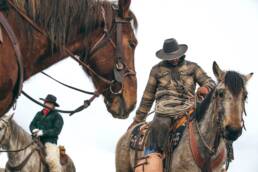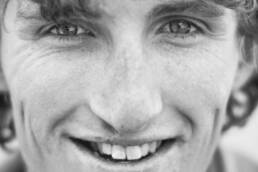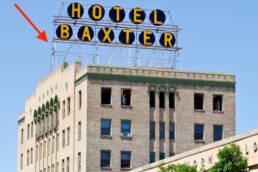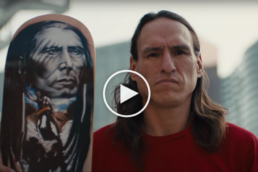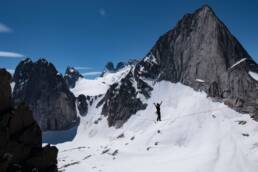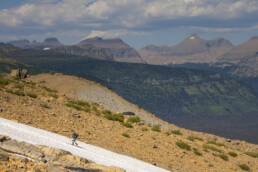A former Navy SEAL reins in mustangs and the Montana wilderness, hoping to bring peace to veterans still alone at war. These are Heroes and Horses. By Jayme Moye. Photos by Chris Douglas.
Micah Fink knew it was a crazy idea. For his next horse packing expedition he wanted to use wild mustangs. Aranged through his non-profit organization Heroes and Horses, the trip would include 40 days in Montana’s Gallatin National Forest with 16 inexperienced riders, all combat veterans with varying degrees of post-traumatic stress disorder. Fink also knew a crazy could be a good one.
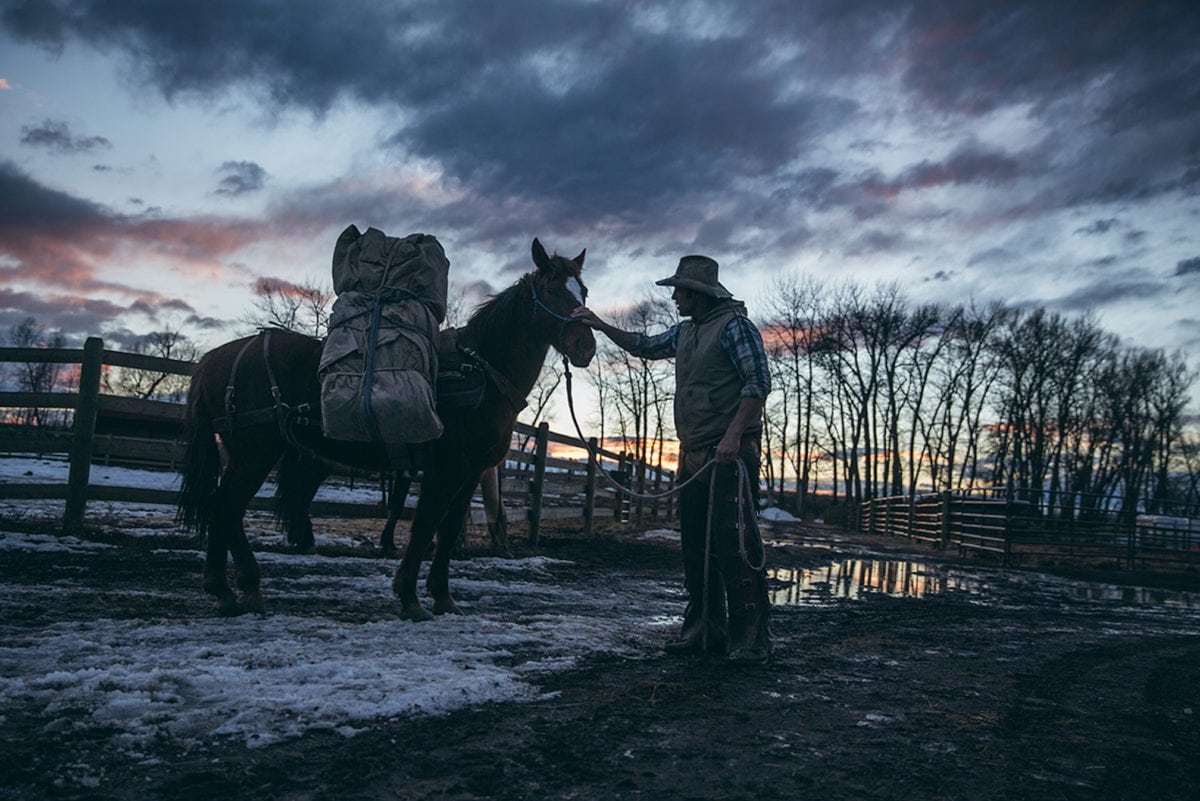
There are more than 50,000 horses in long-term holding facilities in the American West, part of the Bureau of Land Management’s program to thin the population of wild horses on public lands. The facilities are a compromise between those who want those horses roaming free again and those who fear the wild-horse population is growing too rapidly to sustain itself and hurting cattle ranchers’ profits by overgrazing the land.
Fink, 38, doesn’t exactly like the idea of an out-of-control wild-horse population decimating the landscape, but, still, he empathizes with the animals that have been confined to what he calls “horse jail.” A former Navy SEAL and military contractor with Special Operations, Fink spent 14 years deployed in some of the most dangerous places on earth. Upon re-entry into civilian life, he became severely depressed. “You go from jumping out of a plane at 25,000-feet in the middle of nowhere and hunting down bad guys to working out in a gym,” says Fink, who is now based in Bozeman, Montana. “It just doesn’t translate.”
Fink found a way to repurpose his life through outdoor adventure, specifically horse packing, a highly specialized form of backcountry camping where participants ride instead of hike and lead a string of pack mules to carry their camping gear, food and supplies. Horse packing gets people deep into the mountains for extended periods of time. Fink started Heroes and Horses in 2013 to help combat veterans find new meaning in their lives, much the same way he did, through 40-day horse-packing expeditions in some of the most remote wilderness in the United States. Graduates are then eligible for four- to six-week internships with outdoor outfitters. Which brings us to the wild mustang: Fink had been using ordinary domestic horses for his program, either donated or sponsored by donors. Then he heard about the wild-horse population from friend and colleague Ben Masters. “What to do with those horses is a very political issue in the US,” says Fink, “and one simple solution is for people to adopt them.”
At the start of the Heroes and Horses season last June, Fink had 16 mustangs with a new lease on life in his herd and 16 veterans to pair them with.
Despite the challenges of trying to tame a group of wild horses, Fink couldn’t shake the idea that the animals were a good fit. Horses are central to his program, not only as the means of transport for people and supplies into the backcountry, but because of the human-horse bond that forms over the course of the expedition. Veterans stay with one horse for all 40 days, spending up to 14 hours a day in the saddle, which means that during waking hours, each participant is in near-constant communication with his horse, whether he realizes it or not. Fink says a horse acts as a mirror, that whatever you’re feeling inside—anger, anxiety, fear—your horse will reflect it back at you. In the first couple of days of the program, most participants quickly become frustrated with their horse’s behaviour and start to experiment with what they need to change to get their animal to obey. The answer is almost always an adjustment to the rider’s own attitude, belief or behaviour. Repeating that internal exercise day after day, hour after hour, minute after minute, develops a new level of self-awareness in the rider. “I’ve seen the most introverted, hard cases break down with these horses,” says Fink. “A man just holding his horse and crying, because he’s realized that horse is him. It’s him.”
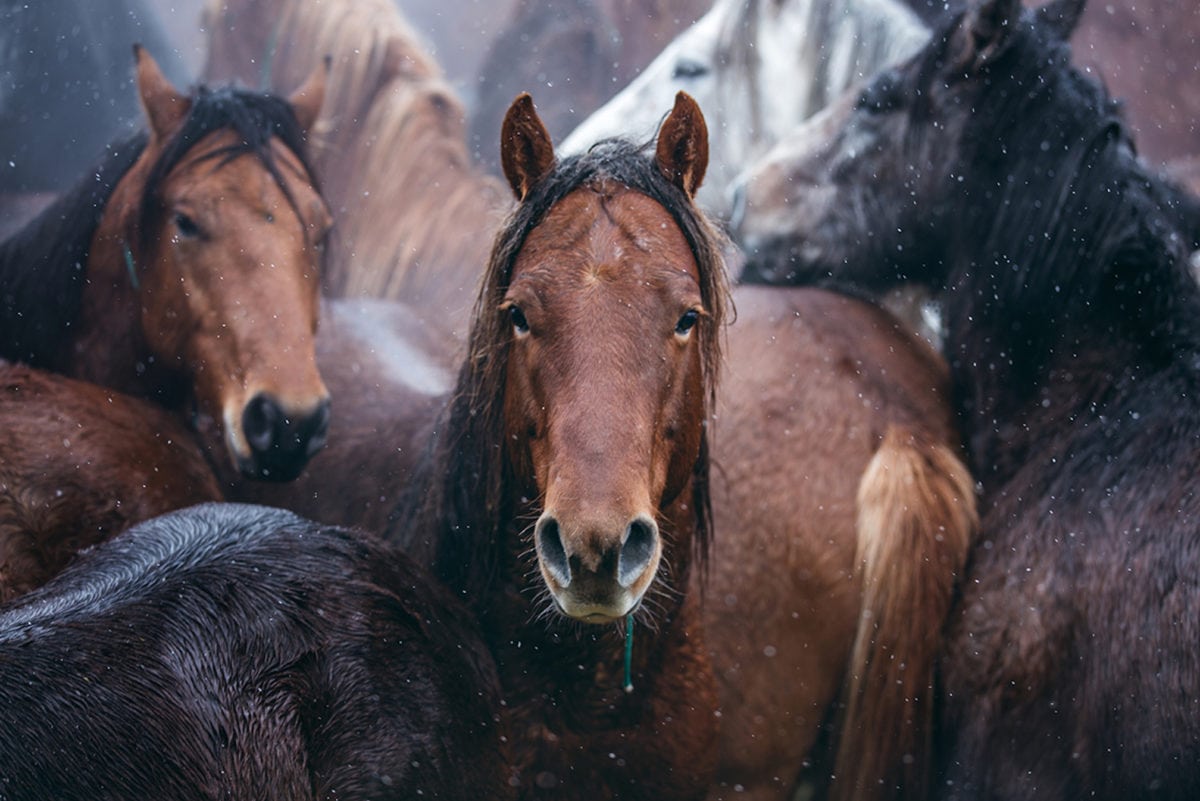
Fink finally went ahead with bringing wild horses into the program in January 2017, adopting 16 mustangs from the Oregon Bureau of Land Management. The horses were initially violent and aggressive. Fink employed three master horsemen to help him with the gentling process, an endeavour that took four months and included a 900-kilometre test ride through Arizona and New Mexico. The effort bore fruit. At the start of the Heroes and Horses season last June, Fink had 16 mustangs with a new lease on life in his herd and 16 veterans to pair them with. He calls it his best year ever. “I realized why I was so drawn to the mustangs in the first place,” Fink says. “They’ve got the same problem as soldiers coming home from war: mismanagement and a lack of purpose. Heroes and Horses offers a fundamental fix for both.”
Related Stories
An Ode to Montana Climber Hayden Kennedy
In the wake of the tragic news about Hayden Kennedy's death, we reflect on how he lived with conviction and confidence,…
Montana’s Bridger Bowl Mountain Has The Coolest Way Of Announcing New Snow
When powder plowers in Bozeman, Montana, see the light, it's time to shred. By Nicholas Lampard. Barring a two-day…
How One Man Survived Residential School To Become A Professional Skateboarder
The New Yorker has published a short documentary about Joe Buffalo, a Canadian Cree and professional skateboarder who…
Cranbrook Man First To Highline The Bugaboos
Travis Foster, a resident of Cranbrook, British Columbia, has become the first person on earth to set up, and…
The Man Who’s Skied 126 Months In a Row
For Craig Moore, the last decade has been a little up and down. One hundred and twenty six straight months of ski…
Is Zeke Helliwell The Richest Man in Whistler?
Who has a richer life: Whistler's wealthy and worldly or woodworker and dad of one Zeke Helliwell? Depends how you look…


